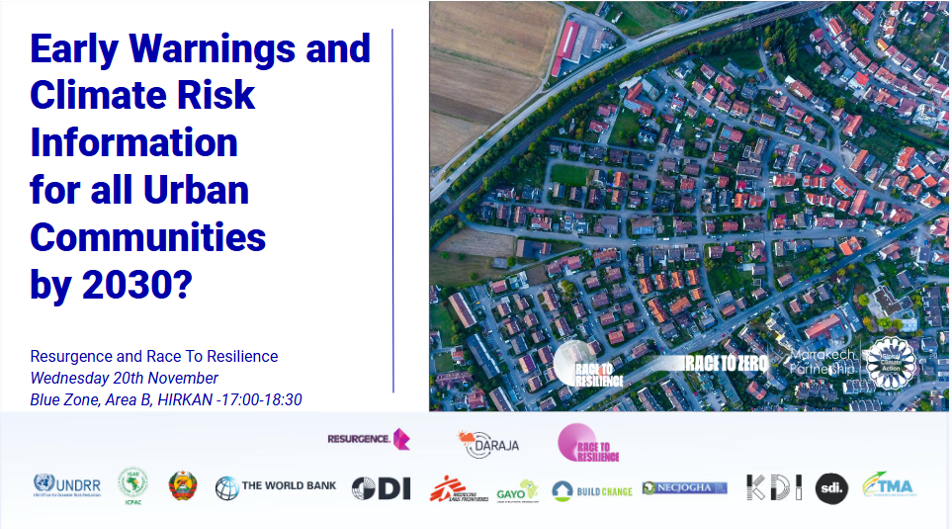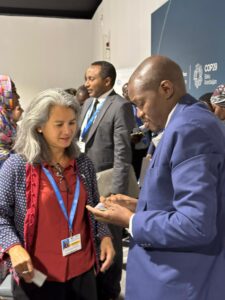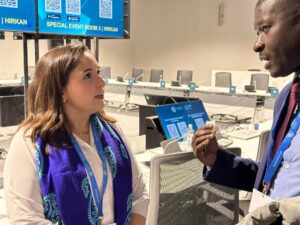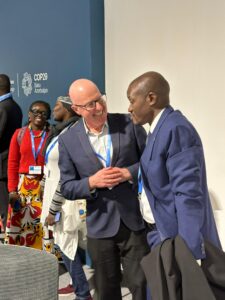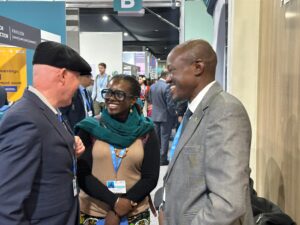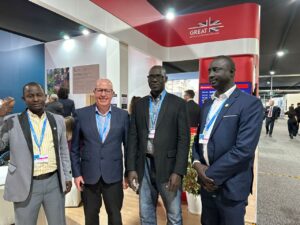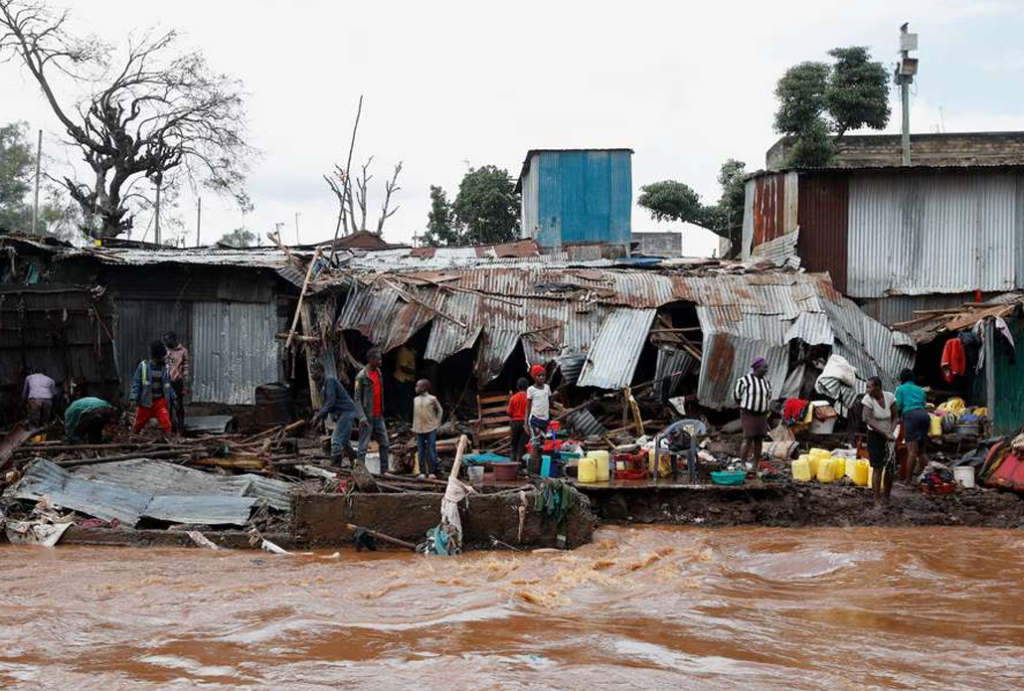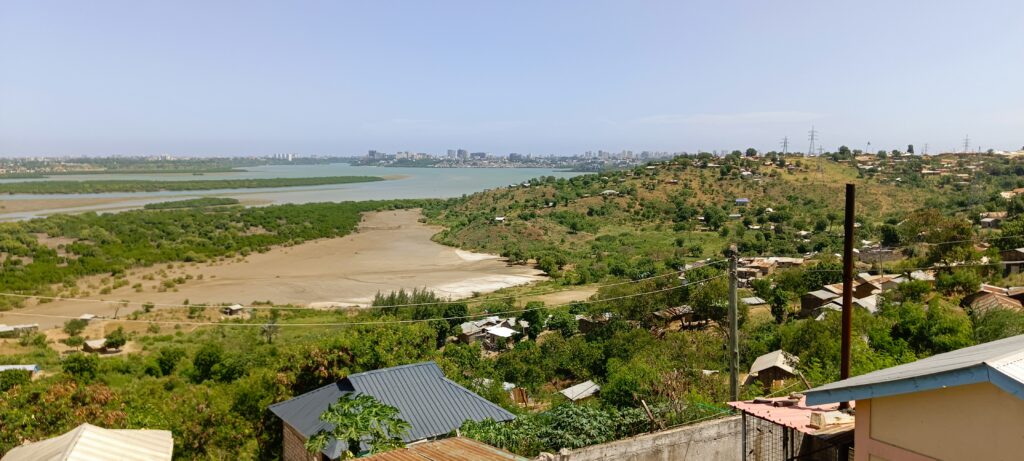Resurgence Brings Frontline Voices to COP29: Bridging the Early Warning Gap for At-Risk Communities
Resurgence convenes critical dialogue with High-Level Climate Champions on reaching vulnerable urban communities by 2030
Baku, Azerbaijan – November 2024
At COP29, Resurgence hosted a pivotal session under the Marrakech Partnership and UN High-Level Climate Champions, bringing together global experts to tackle a pressing question: Are we on track to achieve universal early warning systems for all urban communities by 2030?
The Implementation Lab Roundtable, held in the Hirkan Room at the Blue Zone, gathered diverse thought leaders to examine progress and persistent challenges in financing and building inclusive early warning and climate risk information systems for human settlements.
The Stakes Are Clear
Mark Harvey, CEO of Resurgence, framed the urgency: echoing the UN’s call for universal early warnings by 2027, he asked participants to identify what works, what needs improvement, and how collaboration can drive action.
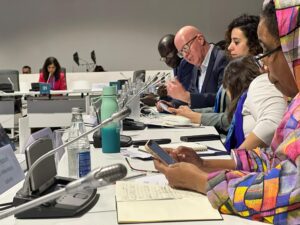
The session revealed stark realities. Dr. Animesh Kumar from UNDRR presented data showing that countries with robust early warning systems experience 6-8 times lower mortality rates from climate disasters. Yet critical gaps remain in governance and equitable implementation, particularly for the world’s most vulnerable communities.
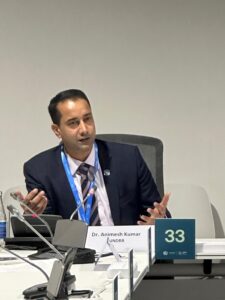
Voices from the Frontlines
Dr. Manuel de Araujo, Mayor of Quelimane, Mozambique, shared powerful testimony about Cyclone Freddy’s devastation and the funding gaps plaguing Mozambique’s monitoring systems. “Marginalised groups suffer most, relying on nature for survival,” he emphasised.
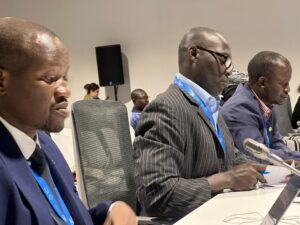
Hanan Rabbah from Sudan Meteorological Authority delivered a poignant reminder: “Climate needs don’t vanish in conflict.” She shared how Sudan’s meteorological services continue operating amidst extraordinary adversity.
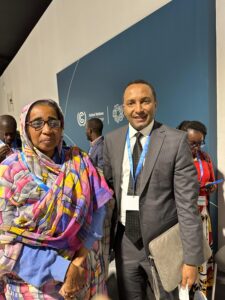
Regina Opondo from Kounkuey Design Initiative highlighted community-led solutions like the DARAJA initiative: “When a woman in a slum can challenge a planning professional, we know we’ve made progress.”
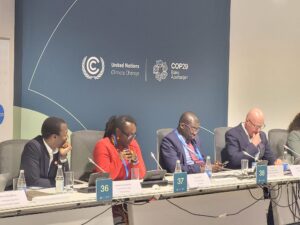
Joshua Amponsem from Green Africa Youth Organization urged greater youth engagement: “First responders lack the means to act. We need better resourcing of local responders.”
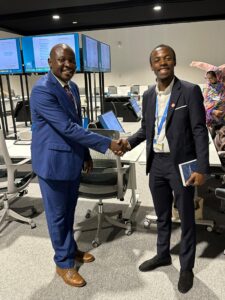
The Technical and Trust Gaps
Dr. Ahmed Amdihun from IGAD/ICPAC pointed to a critical gap: “We need observations within cities to understand how weather is performing.” He emphasised the lack of granular urban forecasting and the vital role of precise data in life-saving interventions.
Dr. Dina Zayed from ODI Global challenged conventional metrics: “We must reframe success—not just by technical data but by trust, power, and governance.” She urged a shift toward equity-focused early warning systems.
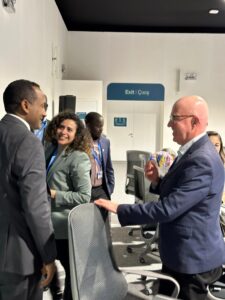
Sheela Patel, Climate Champions Global Ambassador and women’s collective advocate, underscored fundamentals: “Governance and trust are as essential as protocols.” She called for systemic reforms to ensure vulnerable communities can act on warnings.
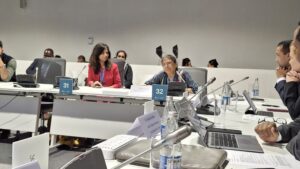
Financing the Future
Joanna Masic from the World Bank was direct: “World Bank financing alone won’t suffice—we need innovative ways to fund early warning systems.” Meeting COP29’s $120 billion early warning system financing targets will require unprecedented public-private collaboration.
Monica Schroeder from Build Change offered practical wisdom: “The best complement to early warning systems is resilient infrastructure.”
Five Calls to Action
The session concluded with clear priorities for achieving universal early warnings by 2030:
- Prioritise Marginalised Groups – Close gaps in communication, infrastructure, and accessibility
- Invest in Technology – Scale low-cost, urban-specific data solutions
- Build Trust and Governance – Foster inclusive partnerships for effective adoption
- Mobilise Financing – Innovate to meet ambitious funding targets
- Empower Communities – Engage grassroots organisations in co-creating resilience strategies
As Dr. Ladislaus Chang’a, Vice Chair of IPCC and Acting Director General for Tanzania Meteorological Authority concluded: “Information shared here should be compiled into a narrative for future COPs.” The pathway to universal early warnings demands collaboration, communication, and unwavering commitment to uplift the most at-risk populations.
Watch the full session: COP29 Early Warning Systems Discussion
